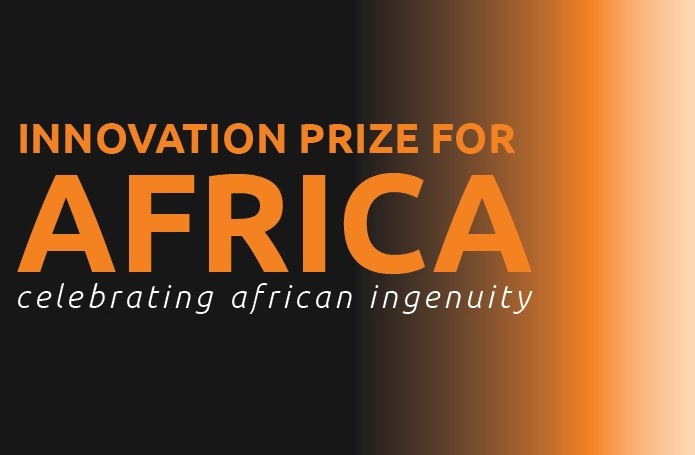The Innovation Prize for Africa (IPA), a non-governmental organisation (NGO), has been offering support to Africans interested in developing technological innovations to solve problems on the continent and the globe at large.
According to Pauline Koelbl, IPA director, the foundation seeks to increase Africa’s prosperity through investing in home-grown innovations and entrepreneurship.
It also plans to strengthen African innovation ecosystems and mobilise a network of innovation enablers, who drive business development and cross-collaboration.
She said the foundation seeks to demonstrate that African ingenuity exists at a Pan-African level through honouring outstanding innovations and recognising their positive impact in Africa and beyond.
Advertisement
Since the IPA was initiated six years ago, there have been 17 winners from 13 African countries.
“This year we’re also hoping to maximize the number of entries from women, so it would be good to note that we have had three female winners (editions 2015, 2016 and 2017),” Koelbl told TheCable.
THE PRIZE
Advertisement
“In total, we have awarded and supported winners and nominees with over US$1 Million in these past six editions of IPA,” Koelbl said.
“Each year, IPA awards a total share prize of US$185 000 for top ten innovations: Grand Prize of US$ 100 000 – Best in class for Marketability, Originality, Scalability, Social Impact, Utility/Technical Aspects, second Prize US$ 25 000 – Best Marketability and Business Potential, special Prize of US$ 25 000 -Highest Social Impact, US$5 000 voucher for each IPA nominee to boost their innovations.
“Additionally, our nominees and winners receive other invaluable benefits that help provide much-needed visibility and validation for their innovations including Pan-African & international media publicity, networking opportunities and invitation to join Zuahub.”
MEET THE BENEFICIARIES
Advertisement
IPA said it chooses its winners based on the originality, marketability, social impact, and scientific/technical verisimilitude of their innovations.
In 2012, Zeinou Abdelyamine from Algeria won the second prize for developing ‘Bit Bait’, a 100% natural product to fight insects and rodents. Bit Bait is a product that is environmentally friendly while being effective.
In 2015, Lesley Erica Scott from South Africa was the winner of the special prize with the highest social impact for her Smartspot tuberculosis (TB) check innovation. Smartspot’s flagship product, the TB check, examines the accuracy of machines used to detect TB diagnosis.
It is designed to assess whether these machines are functioning optimally. Unlike other products, Tb check is easy and safe to use and can be delivered to laboratories safely and economically, therefore making the diagnosis of TB far easier and might go a long way in curbing the TB epidemic in Africa.
Advertisement
In 2016, Imogen Wright also from South African, emerged the winner of the second prize for her innovation, ‘Exatype’, a software solution that enables healthcare workers to determine HIV positive patients’ responsiveness to ARV drug treatment.
According to WHO, 71% of people living with HIV/AIDS reside in Africa.
Advertisement
In 2017, Philippa Makobore from Uganda won the second prize for her innovation, the Electronically Controlled Gravity Feed Infusion Set (ECGF), designed to accurately administer intravenous (IV) fluids and drugs by controlling the rate of fluid flow based on feedback from a crop sensor.
The ECGF is easy to operate and has key safety features which include alarms for rate of infusion (rapid or slow), total volume (over or under) and faulty sensors. The device is powered by a battery utilizing a hybrid (AC mains and solar) charging bed.
Advertisement
Valentin Agon won the IPA award in 2016 for his API-PALU, a natural antimalarial drug, based on the active principles extracted from West African medicinal plants.
And most recently, Eddy Agbo, a molecular bio-technologist from Nigeria, won a social impact award for his invention Urine Test for Malaria (UMT).
Advertisement
“The UMT is a rapid non-blood diagnostic medical device that can diagnose malaria in less than 25 minutes.
Africa has the highest number of malaria cases worldwide; more often than not, when fever is detected, anti-malaria medication is administered,” Agbor said.
“However, the inability to quickly diagnose and commence malaria treatment can lead to various complications including kidney failure, the build-up of lung fluid, aplastic anaemia and even death.
“UMT uses a dip-stick with accurate results in just 25 minutes. The technology detects malaria parasite proteins in the patient’s urine with fever due to malaria. The UMT is simple and affordable, and a potential game changer in managing malaria and saving lives across Africa.
“First, let’s get something clear: most fevers are NOT due to malaria. Let me say that again, most fevers in Nigeria are NOT due to malaria. So, it’s critical to test to be sure.
“The UMT works just like a simple pregnancy test. If one has a fever, you take a few drops of urine into the test cup provided in the kit, dip the UMT strip into the cup and let stand for 25 minutes, then read results. Two lines across the strip confirm that the fever is due to malaria; one line indicates that fever not due to malaria.
“The UMT is NAFDAC-approved and endorsed by the Federal Ministry of Health.”
The IPA is in partnership with the World Intellectual Property Organization (WIPO), Geneva; Botswana Innovation Hub (BIH); African Academy of Sciences (AAS).







